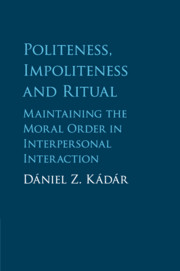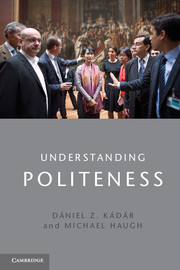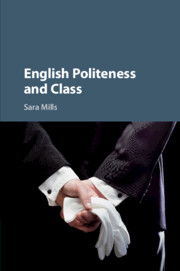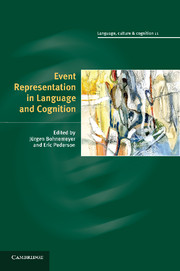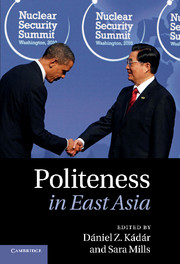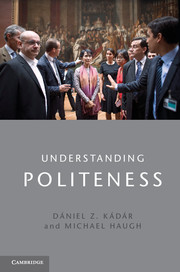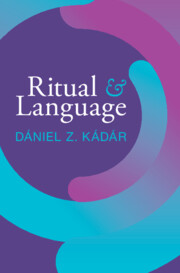Politeness, Impoliteness and Ritual
Maintaining the Moral Order in Interpersonal Interaction
£30.99
- Author: Dániel Z. Kádár, Dalian University of Foreign Languages, and Hungarian Research Institute for Linguistics (NYTI)
- Date Published: May 2019
- availability: Available
- format: Paperback
- isbn: 9781107643888
£
30.99
Paperback
Other available formats:
Hardback, eBook
Looking for an inspection copy?
This title is not currently available on inspection
-
Ritual is popularly associated with ceremonies, though in real life it plays a significantly more important role, reinforcing what people perceive as the appropriate moral order of things, or challenging what they perceive as the inappropriate flow of events. This book introduces the reader to how people use ritual in interpersonal interaction and the interface that exists between ritual and politeness and impoliteness. As rituals have a large impact on the life of people and communities, the way in which they use politeness and impoliteness in a ritual action significantly influences the way in which the given ritual is perceived. Politeness, Impoliteness and Ritual examines this complex relationship by setting up a multi-layered analytic model, with a multidisciplinary approach which will appeal to interaction scholars, politeness researchers, social psychologists and anthropologists, and moral psychologists. It fills an important knowledge gap and provides the first (im)politeness-focused interactional model of ritual.
Read more- Provides a model that can be used to analyse a wide variety of data types
- Offers a multidisciplinary approach to (im)politeness and ritual, by utilising politeness research, pragmatics, cross-cultural and historical interaction research, and social psychology
- Presents an in-depth framework of social aggression, including phenomena that generate public attention such as bystander intervention
- Utilises both metapragmatic and discourse analytic research
Reviews & endorsements
'This pioneering monograph brings together two foundational analytical perspectives on social interaction for the first time. Be prepared for a rewarding intellectual journey that offers a new understanding of omnipresent rituals as the substance of the moral order.' Francesca Bargiela-Chiappini, University of Warwick
See more reviews'Politeness, Impoliteness and Ritual provides a solid analytic framework from both theoretical and interactional perspectives. One of the book's strengths is the wide range of datasets drawn from various human languages from the Far East to the West. This merit gives this piece of work its authenticity and reliability, making it one of the groundbreaking works in the field in recent years. Another feature that distinguishes this work is its complex and yet accessible model, which is replicable to other languages and cultures. Last but not least, the book is written in a highly accessible fashion. Therefore, this book is a must-read for scholars involved in research related to politeness and ritual, and students and educated readers who simply want to learn about a fascinating phenomenon.' Khaled Khader Oraby, FLEKS - Scandinavian Journal of Intercultural Theory and Practice
'[Politeness, Impoliteness and Ritual] presents the results of a very interesting, interdisciplinary work and a stimulating framework. As a pioneering monograph that opens new research avenues, I warmly recommend it to any linguist interested in im/politeness questions.' The LINGUIST List
'… this is an original and compelling book, clearly exploring the interface between politeness, impoliteness, and ritual. It serves as an excellent resource for experienced (im)politeness researchers looking to further extend their research scope, for ritual researchers exploring the oftneglected phenomenon of (im)politeness in ritual study, and for readers interested in the relationships between (im)politeness and language aggression.' International Journal of Communication
'With Politeness, Impoliteness and Ritual: Maintaining the Moral Order in Interpersonal Interaction, Dániel Kádár asserts and cements his place as the driving force behind the ritual turn in pragmatics research in general, and (im)politeness studies in particular. The preface provides an illuminating overview of the subfield, an especially valuable contribution for the uninitiated. … The text is written in a lively, direct style, and the case studies of heckling and bystander intervention are both fun and illuminating.' Mervyn Horgan, Contemporary Sociology
Customer reviews
Not yet reviewed
Be the first to review
Review was not posted due to profanity
×Product details
- Date Published: May 2019
- format: Paperback
- isbn: 9781107643888
- length: 282 pages
- dimensions: 230 x 152 x 15 mm
- weight: 0.4kg
- contains: 39 b/w illus.
- availability: Available
Table of Contents
Preface
1. Introduction
Part I. Ritual and (Im)Politeness - the Basic Relationship:
2. Ritual: its definition, typology and relational role
3. Ritual and politeness research
4. Ritual and (im)politeness: the basic relationship
Part II. Ritual, (Im)Politeness, and Moral Aggression:
5. Rites of moral aggression in operation: countering the heckler, and bystander intervention
6. Voicing the moral order(s) in ritual aggression: morality and/versus (im)politeness in the rite of bystander intervention
7. De/Ratifying the maintenance/maintainer of the moral order: moral responsibility in events of heckling
8. Conclusion.
Sorry, this resource is locked
Please register or sign in to request access. If you are having problems accessing these resources please email [email protected]
Register Sign in» Proceed
You are now leaving the Cambridge University Press website. Your eBook purchase and download will be completed by our partner www.ebooks.com. Please see the permission section of the www.ebooks.com catalogue page for details of the print & copy limits on our eBooks.
Continue ×Are you sure you want to delete your account?
This cannot be undone.
Thank you for your feedback which will help us improve our service.
If you requested a response, we will make sure to get back to you shortly.
×
